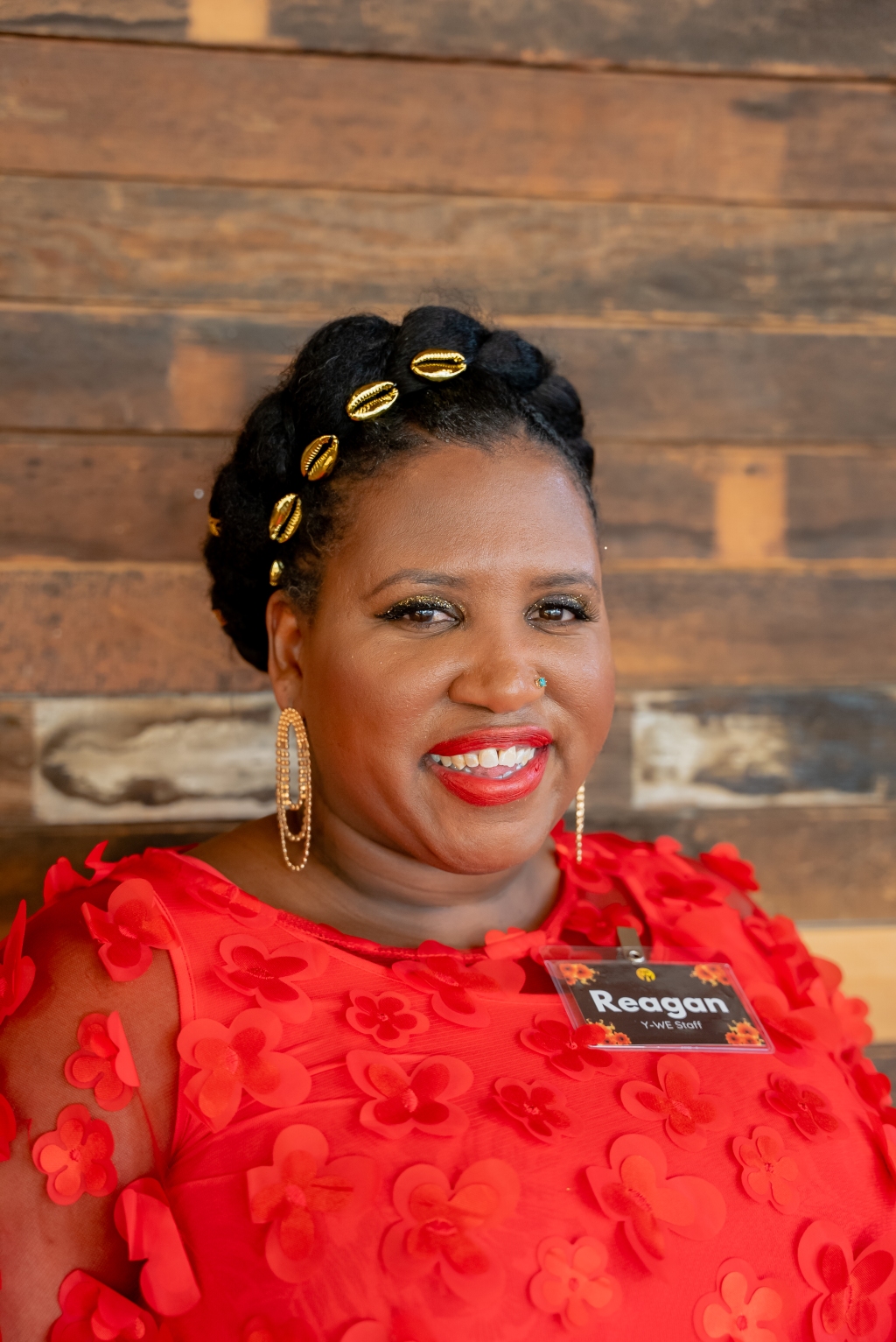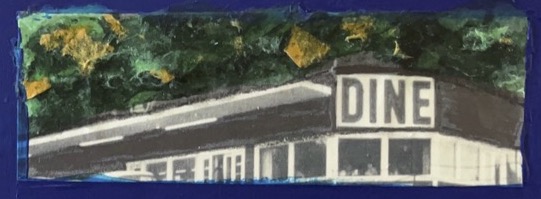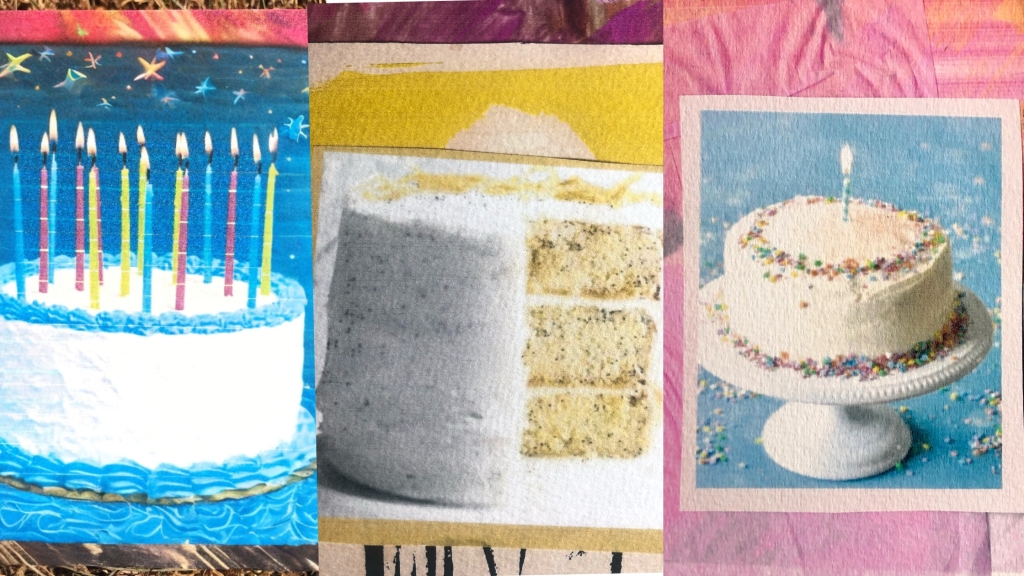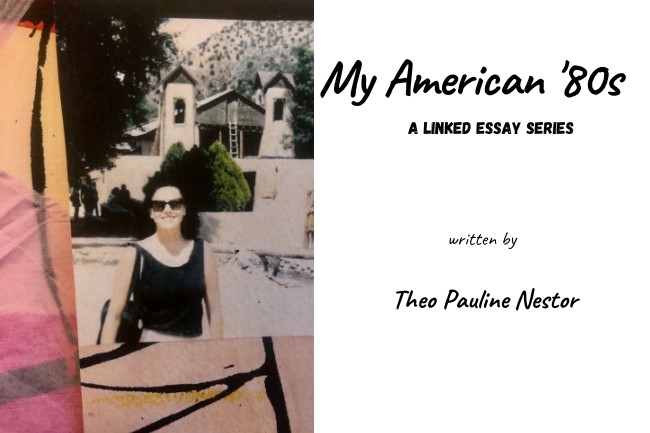About five years ago, Tim Elhajj was in one of my memoir classes through UW’s Professional and Continuing Education dept. We kept in touch through Facebook after that, and a few years ago I was really excited to read his fantastic essay in the New York Times‘ Modern Love column. Last fall, Tim and his wife, Holly Huckeba, visited Writing Is My Drink to talk about their online literary magazine devoted to stories of addiction, Junk. Now, I’m thrilled to announce that Tim’s first book, Dopefiend: A Father’s Journey from Addiction to Redemption, will be launched this month, available for presale now on Amazon.
I got to read an advance reading copy a few months ago, and I read the book in three sessions, staying up quite late two nights because–as the cliche goes–I couldn’t put it down. Dopefiend is the compelling story of Tim rebuilding his life in recovery from a heroin addiction. In one of the opening scenes, he’s in a Lower East side homeless shelter briefly considering selling his shoes to buy some dope. Then, he realizes it’s December and he would have no shoes. Tim captures the starkness of that realization and his experience of climbing out from that low place vividly in Dopefiend.
Here’s what Tim has to say about the experience of writing this book:
Theo: Tell us a little about your new memoir, Dopefiend, and how you came to write it.

TIM ELHAJJ: On one level, DOPEFIEND tells the story of my recovery from heroin addiction. On another level, DOPEFIEND is the story of how I found an essential place in the life of my son, who grew up with his mother and step-father. Like most good things in my life, DOPEFIEND came about as a result of a complete failure. I had been trying to write a different book, a childhood memoir. I had worked on it for many years and had been stalled for almost an entire year when it became clear to me that I would not be able to finish the work. I felt so demoralized. This was about three years ago. During this time, something remarkable happened. This remarkable event comes at the end of DOPEFIEND, and I don’t want to give away the ending of the book, but what happened caused me to reflect on how my addiction to heroin altered the course of my life; the real ways in which my selfish, immoral behavior as an addict changed the lives of others, people who I cared for, some very deeply. I think every recovering addict has these sort of feelings sooner or later. I know I have in the past. But this time I could also see clear, tangible evidence of how my experience with addiction could benefit others. My son, in particular. My worst failure had become my greatest asset.
Theo: One of the aspects of the book I found remarkable and refreshing is that it’s a story of  recovery with no (or at least to my memory) onstage drug use. The book focuses on the hard work the narrator went through to build a life for himself from scratch, but with no real pining for the drug or nights of debauchery recalled. Was this a conscious choice? How did you decide what to put in and what to leave out?
recovery with no (or at least to my memory) onstage drug use. The book focuses on the hard work the narrator went through to build a life for himself from scratch, but with no real pining for the drug or nights of debauchery recalled. Was this a conscious choice? How did you decide what to put in and what to leave out?
TIM ELHAJJ: I felt strongly that this story was about two main themes: First, my relationship with my oldest son. The emotional heartbeat and energy of my recovery all seems to orbit around him. Second, my relationship with AA. Any wisdom I have about how I ought to be in the world without the benefit of heroin has mostly come from these kind people, many of whom I don’t even know their last names.
Thinking about how to bring these two themes together, I remembered something my AA sponsor once told me that I have always found very comforting. His thing was this: “Every day that you stay sober, you work one or more of the steps, whether you know it or not.” Talk about taking off the pressure. We would talk on the phone about the things I did during the normal course of my day and he would occasionally offer insights to me about how my actions exemplified the principles in one or more of the steps. Pretty soon I started to think this way myself. So you’re asking how I decided what to put in and what to leave out. I started with the twelve chapter titles—each chapter title is a value representing one of AA’s twelve steps. I wanted to use anecdotes from my recovery that explored some aspect of those values, hopefully in a way that makes people think differently about those values, or offers some insight into what recovery, or a parent’s deep yearning for a relationship with his son, might mean. I know it all sounds terribly complicated, but once I sat down and started to think the story through in this manner, each chapter seemed to fall into place quite naturally. This organization also helped me bridge thematically some of the long lonely separations my son and I endured.
I just visited with my son at the end of summer and shared the finished book with him. He read it all up and I had a great time discussing the book with him the next day. He said he could see where the experience I described having with my AA sponsor was similar to the experience he has had talking with me on the phone. I can’t tell you how satisfying that was to hear.
Theo: Did you have any dilemmas about writing about other people–family, friends, people from recovery?
TIM ELHAJJ: Yes, good question. Absolutely. I have run into a few problems and each time it happens I’m caught off guard and surprised. To me, writing memoir is a sacred bond between author and reader. I feel a responsibility to present my experience as accurately and vividly as I am capable, but I don’t want to embarrass or hurt anyone. I hope I never use memoir to settle old scores or anything like that. So before I started, I asked my son what he thought of my idea for the book. He was enthusiastic. He gave me his permission to discuss our relationship. That didn’t surprise me. He’s my biggest fan. But a few months later, I showed him the prologue I intended to use for the book. He read what I wrote, and came away with BIG feelings. That did surprise me. I am writing about a time when I was still using drugs and he was three years old. There is a line early in the piece that describes me looking into his eyes, searching “for some recognizable piece of myself” and not finding much. When I wrote that, I never imagined it would upset him. To me, it seems like I’m stating the most obvious of facts. He is a happy and carefree child and I am a heroin addict. But it did upset him. And I am so proud of him for just being able to stand up and say—“Hey, this really bothers me. Let’s talk.” And we did. In fact, we still are. My sense for it is that my job as a recovery addict and parent is to show up and allow him the time he needs to work through those uncomfortable feelings.
Theo: What was your writing process like? In particular, I’m curious how you fit writing a book into your family and professional life.
TIM ELHAJJ: My wife, Holly, is the real hero here. I couldn’t have finished this without her support. She’s a wonderfully talented writer herself and she totally understood how important this was for me. She cleared out the little closet in our bedroom so I’d have a place to work, ran interference for me with our kids, and even brought me the occasional cup of hot coffee in the morning.
More importantly, though, Holly was a wellspring of encouragement and level-headed optimism, especially when we things came down to the wire at the end of revision. I started to lose patience with the publisher and the process we were going through to complete the manuscript. At the very end, the kids had their swimming championships, which they had practiced all year for and I didn’t feel like I could afford to miss out on. Holly and I went down to the county aquatic center for the weeklong session of swim meets and things were crazy at our house. The manuscript was due, there were no weekends left to work on it, and though I still liked what I had created, I worried that I hadn’t made significant change to much of anything during revision. Monday morning Holly grabbed the manuscript and said she’d take a look. I went to work expecting to find a few polite, encouraging notes in the margins when I came home. Instead, later that night, she handed me a manuscript with dozens of marks on most every page. She really worked it over. It was due the next day. I work at a high pressure corporation and loathe being late or substandard in any of my deliverables. For me, it’s physically painful to miss a deadline, much less ask for help. I almost fainted. But then I started leafing through her revisions and they were all so good. She was untangling syntax, clarifying metaphors, sharpening and tightening on every page. I knew I’d be a fool to ignore her work. I also knew I couldn’t get it all done in a single night. Next morning I called the publisher and pleaded for more time. They gave me the weekend and I worked like a madman. I took almost every one of my wife’s suggestions. She knew just what I was trying to achieve and she was helping me get exactly where I wanted to go. She’s just amazing. If this book does well at all, we will all owe Holly a huge—HUGE—debt. I’m so grateful for her help.
The kids were wonderful too. I would go into my little closet in the morning and sometimes come home late at night, after they’d already gone to bed. Between going to AA meetings at night and work, sometimes we didn’t see one another for days. But they never complained and always cheered me on. They are my most ardent fans. Check out my blog post about my littlest fans when the box of books arrived from the publisher.
Theo: Do you want to tell us about your publication process? How you found a publisher and what it was like working with a press that focuses on recovery?
TIM ELHAJJ: This is my first book and I had no idea what I was doing. I created a proposal and sent it to a few agents, one or two university presses, and a few recovery presses who had published memoir in the prior year. CRP snapped the book up a few months later. I was thrilled.
CRP mostly publishes self-help books. My challenge working with them was to articulate the value of a nonfiction narrative, a well-told story. I feel strongly that our stories—and here I’m not just talking about recovering people, but everyone—are the most powerful tools we have for connecting with other people. When I finally handed off the manuscript, I felt their anxious concern, despite the fact that it’s—plot-point for plot-point—exactly what I initially proposed. I think they were expecting something a little more didactic. I exhausted myself advocating for the work, and I feel as if I achieved almost exactly what I hoped for when I first set pen to paper. Now I just hope it does well, or I’m going to feel pretty foolish.
Theo: Are you thinking about future projects yet?
TIM ELHAJJ: I have a few ideas percolating. I know I want to finish the childhood memoir I started, but it might not be time to jump back into that one yet. I’ve been toying with the idea pulling together a collection of previously published essays that explore a wider range of my experience—everything from using drugs to parenting as a recovering addict.
I’m also thinking about writing a book on how to write memoir, by applying the principles I learned in AA. The writing life is similar to the lifestyle of someone in recovery, especially if you’re a new writer, buffeted by your own insecurities and up against the seemingly insurmountable obstacle of getting work published. I can remember early in my recovery looking at the people who had a year or more of recovery and feeling as if I’d never be able to guide my own life in a similar fashion. I can remember feeling the same about seeing my own name on the spine of a book, yet here I am. As a writer, you compete with so many other great writers. Getting published is as much a gift as getting sober. Nothing you do can guarantee you’ll find recovery—even the best, smartest, most spiritual people relapse. The only guarantee you’ll get with recovery is that if you stop trying, you most certainly won’t get it. Same with getting published. You don’t need to learn how to write, as much as you need to learn how to keep trying, one day at a time.





Leave a Reply